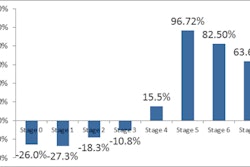Increased use of clinical decision-support (CDS) software leads to greater patient dissatisfaction, according to an article published in the January issue of Medical Decision Making.
Use of these systems could result in patients not following their doctors' orders for preventative care and treatment recommendations, wrote Victoria Shaffer, PhD, assistant professor of health sciences at the University of Missouri School of Health Professions, and colleagues (Medical Decision Making, January 2013, Vol. 33:1, pp. 108-118).
The decision aids referenced by the authors included alerts about medication errors, suggestions for alternative prescriptions or courses of treatment, recommendations for managing chronic diseases, and reminders to discuss vaccinations, screenings, or other preventative care services.
"Patients may be concerned that the decision aids reduce their face-to-face time with physicians," Shaffer said in a statement about the study. "However, practitioners can use the aids as teaching tools to explain their diagnoses using pictures or graphs, which make the patients' experiences much more interactive and educational."
Shaffer and colleagues found that patients view physicians who use decision aids as less capable than practitioners who make judgments unaided or who consult their colleagues. However, patients were less likely to assign responsibility to physicians for negative health outcomes when they used clinical decision-support systems. For this reason, the aids may serve protective functions in litigation.
The researchers' next step is to identify whether educating patients about the benefits of decision aids alleviates their concerns and leads to greater compliance with practitioners' medical advice, Schaffer said.



















